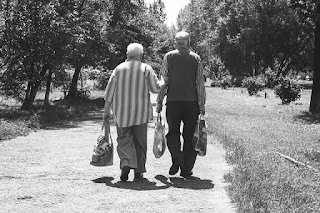Reading Comprehension Passage
From CBSE Class 10 Sample Question Paper
When my maternal uncle was alive, his only son quietly made plans to settle in Germany with his wife. Without informing his father or sister he bought tickets ‘and sold all movable things at home. A week before he left, everyone was informed of his plans. People criticised him for abandoning his father. The married daughter who was settled in Bhopal, shifted to Delhi to look after her father. A year later the father was admitted to a private hospital and died. The son came from Germany, paid the bills and performed all the death ceremonies.
People now said that after all, he had come all the way so he was not a bad son. No word about how he had neglected his father or how his sister had to disrupt her personal life to take care of old Dad.
This is what life teaches every daughter. That our society values a son more because he has the religious sanction to perform death ceremonies and grant them liberation - (
Mukti). A daughter may have given them love, care, sensitivity, time, service, but the son gets preference because he carries forward the family name and performs
shraadh. He may be uncaring, arrogant and indifferent but for parents, a son is their treasure.
Two years back in our neighbourhood a man died without leaving a will. His only son sold the bungalow and took away his sick mother without informing his three sisters who then approached the courts for a share of the property. Is this the family structure we boast of to the world? Where do love and laughter vanish when siblings become adults? Are we right in blaming a newlywed for poisoning a son’s brain? Love for a daughter has to come from within. Saints repeatedly clarify that death ceremonies need not be performed only by one’s own son. And what guarantee is there that a son will perform the
shraadh? If parents do not reciprocate a daughter’s love, won’t Heaven, which claims to be just and fair, reproaches them for their insensitivity?
Questions





